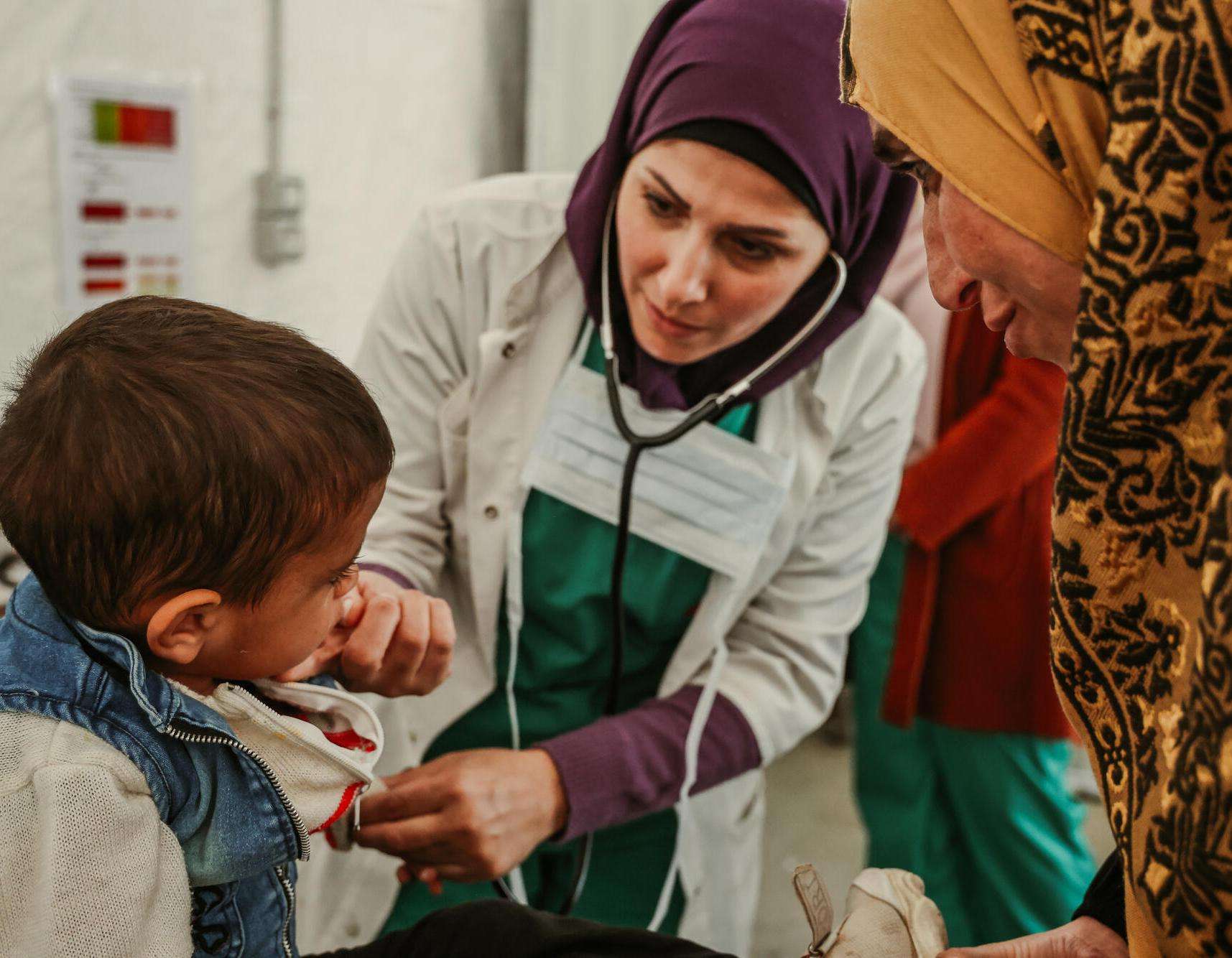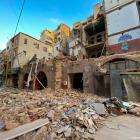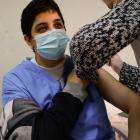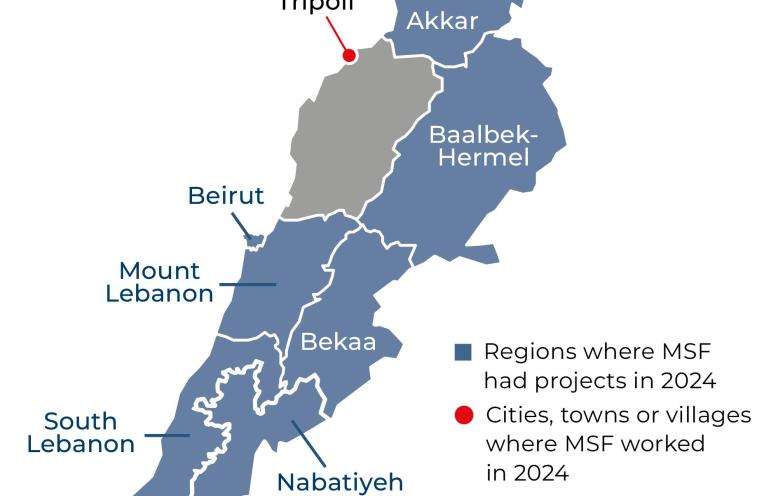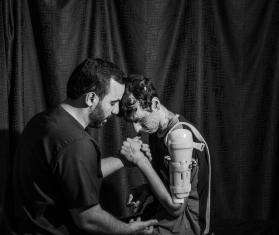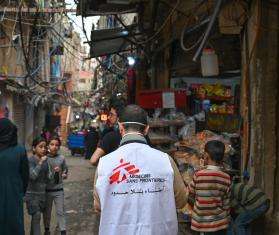Following the escalation in Israeli bombardments and ground incursions in September, MSF sent 22 mobile medical teams to heavily affected areas, including Beirut, Mount Lebanon, Baalbek-Hermel, and Akkar, to deliver trauma care and mental health services and support health care centers. We strengthened hospitals’ capacity by conducting mass casualty training and supplying medical and relief materials.
In Saida, we supported the Turkish Hospital by donating medical supplies and assisting the surgical team. We also launched a telephone helpline to offer remote mental health support. These efforts were crucial as health facilities were unable to cope with the rising number of casualties and the destruction of their infrastructure.
In addition to these medical activities, we distributed hygiene kits, blankets, mattresses, and water to the shelters for displaced people, and supplied hot meals for hundreds of families during the war.
After the November ceasefire, many displaced people returned to destroyed homes. Others were too afraid to return. Access to health care remains extremely limited due to widespread damage to infrastructure and unaffordable costs. The war has been particularly devastating for health care staff and facilities. The World Health Organization reported that 226 health workers and patients in Lebanon were killed and 199 injured between October 7, 2023, and November 18, 2024.
MSF continues to provide vital medical care and support to communities facing ongoing economic hardship and insecurity.
